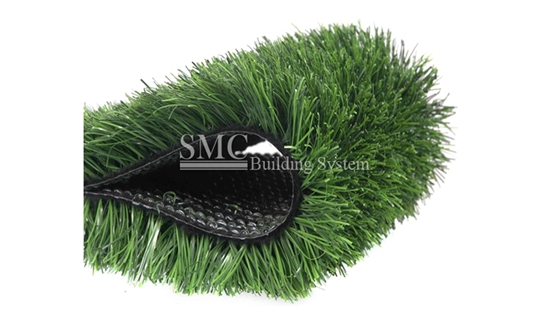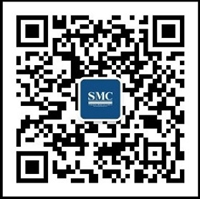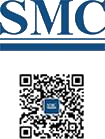
- Company overview The heart of SMC Vision & Philsophy Partnership Certifications Company culture
- Our service Design and Engineering Maintenance and Service Examine Production Line Upgrade and Transformation Storage and Logistics Processing, Trading and Distributor
- Management Our history Global responsibility Info Center
- Procurement center Internship
- Metal Steel Products Stainless Steel Products Aluminum Products Copper Products Galvanized Steel and PPGI Special Alloy Building Material
- Containers ISO Standard Container Equipment Container Storage Container Refrigerated/Reefer Container Offshore Container Container House Tank Container Container Fittings Container Trailer
- Gas Cylinder & Fire Extinguisher Cryogenic Liquid Cylinder Oxygen Gas Cylinder Storage Tank CNG Gas Cylinder LPG Gas Cylinder Hydrogen Gas Cylinder Nitrogen Gas Cylinder Industry Gas Cylinder Fire Extinguisher
- Metal Machinery Forming Machine Cutting Machine Processing Machine Bending Machine Block Machine Other Machinery Motor Spare Parts
- Mechanical Products Miscellany Mooring Equipment Marine Equipment Vehicle Industry Pressure Vessel Conveyor Belt Laser Equipment Bearing
- Electrical System Power Distribution Automation Electrical Cable Solar Power System Electric Protection System Transformer Production Line Lighting System
- Project Plastic Pipes and Pipe Fittings Fiberglass Reinforced Plastic Pontoon System
Encyclopedia of Artificial Turf Industry: Industry Chain, Industry Characteristics and Main Barriers to Entry
Overview of the artificial turf industry
The artificial turf is made of synthetic resin such as PE (polyethylene) or PP (polypropylene), which is made into imitation straw, which is then woven on the base fabric by professional equipment, and coated on the back side to have a fixing effect. Natural grass properties of chemicals.
Artificial turf was born in the United States in the 1960s, initially to solve the problem that natural grass cannot grow in a public place with a ceiling. With the advancement of materials science and manufacturing technology, artificial turf is close to natural grass in terms of color, appearance and contact comfort. Some properties have far surpassed natural grass, especially evergreen, durability, aging resistance, and economy. The characteristics of water, installation and maintenance make the artificial turf able to solve the problems of high frequency use throughout the year, global cold and hot area use, and have the advantages of long service life and low cost maintenance.
Analysis on the artificial turf industry industry chain
The main raw materials of artificial turf are plastic particles, masterbatch, base fabric and original rubber. The upstream industries of the artificial turf industry are mainly petroleum and petrochemical industries. The oil and petrochemical industries are relatively mature and the prices are relatively transparent. Raw materials in the artificial turf industry are adequately supplied, but fluctuations in raw material prices have a direct impact on the cost and profitability of artificial turf companies.
The downstream demand for artificial turf mainly comes from the paving needs of sports venues and homes and landscape scenes. The market size of artificial turf mainly depends on the strength of national and social sports infrastructure investment, the company's paving plan for landscape scenes, and the willingness and ability of consumers to improve the residential landscape environment.
The main features of the artificial turf industry
1, Seasonal
The sale of artificial turf presents different seasonal characteristics in different countries. For example, in the Middle East, due to the hot summer weather, a large number of pavements will be selected in winter; in European countries, when traditional festivals such as Christmas arrive, the demand for home decoration will increase. However, the wholesaler as a direct customer of the company usually maintains the stability of the annual purchase, so that the seasonal characteristics of the artificial turf industry are not obvious.
2, Periodic
The economic cycle will affect the investment needs of sports venues and the consumption needs of leisure venues such as residential landscapes and commercial landscapes to a certain extent. But overall, artificial turf is a weak cycle industry.
3, Regional
The main markets and production sites of artificial turf in the world are not completely consistent, and the Asia-Pacific region is the world's leading exporter of artificial turf. The artificial turf industry has certain regional characteristics.
The technical characteristics of the artificial turf industry
At present, artificial turf has basically been consistent with natural grass in terms of color, appearance and contact comfort. In terms of sports grass, the unique technical level and clear performance indicators of artificial turf are more adequate.

Main barriers to entry into the artificial turf industry
1. Industry certification barriers
Being able to obtain international authority sports organization certification is a prerequisite for the artificial turf enterprise to expand the high-end sports grass market, and it is also an important boosting force for the reputation and influence of the enterprise market.
International authoritative sports organizations are extremely strict with suppliers' qualifications. For example, FIFA (FIFA) recertifies qualified suppliers every two years, and new artificial turf companies need to meet the minimum number of football pavements and certain test standards before applying for certification. Sites that meet FIFA (FIFA) standards are certified as Quality or QualityPro. After certification, companies must ensure that more than five Quality or QualityPro football fields are added each year to maintain qualified supplier qualifications. The global preferred supplier can apply for certification after the company becomes a qualified supplier. The corresponding certification is open to new applicants every 2 years. In addition to the stricter standards, the global preferred supplier certification must ensure that more than 20 quality items are added each year. Or the QualityPro level football field, the qualification can continue.
2. R&D and technical barriers
The manufacture of market-competitive artificial turf products depends on the improvement of raw material formulas such as straw and backing, as well as the improvement of production technology and the maturity and optimization of production equipment. Therefore, artificial turf enterprises need a large amount of long-term research and development investment in order to make product performance and production efficiency meet market demand. At the same time, as international sports authorities continue to put forward higher requirements for the performance of sports grass, and consumers' demand for leisure grass is also increasing, artificial turf enterprises need to continuously increase R&D investment and improve overall technical level to consolidate and enhance. The comprehensive competitiveness of enterprises creates barriers to new entrants.
3. Channel and reputation barriers
Artificial turf products have a wide range of applications and diverse applications. A competitive sales team needs to be able to reach many countries and regions around the world. It needs to be able to fully understand the needs of different types of customers, such as different countries, pavers, wholesalers, etc., in order to establish a stable cooperative relationship with customers. For pavers, industry-leading companies generally develop long-term cooperation and joint bidding to form a relatively stable strategic partnership. For wholesalers, due to their high requirements on product brand, product quality and delivery cycle, they will generally cooperate with companies entering the list of qualified suppliers. The construction of the sales team and the cultivation of the sales channels take a long time, and the sales ability of the enterprise is also subject to the overall management level of the enterprise. Ultimately, consumers will spend a long time after purchasing artificial turf, and product quality is critical to the customer experience. Leading companies in the industry have been engaged in the production of artificial turf for many years, and most of them have established a good market reputation and also constitute a barrier to new entrants.
4. Capital and scale barriers
After decades of development, the global artificial turf industry has a high market concentration. Scale production can effectively reduce production costs, enhance supply capacity, and enable enterprises to occupy a favorable position in the market competition. Achieving scale production requires a large amount of capital to invest in product technology research and development, construction of production sites, purchase of production equipment, hiring of professional teams, development of the international market, and the need to foster a longer period of time, thus forming barriers for new entrants.
For more information, please visit: https://www.shanghaimetal.com/artificial_grass-618.htm
For our full list of products that we offer check out our website here. Be sure to join the conversation in our LinkedIn group, Facebook, Twitter .
Try also our We Chat by scanning the QR code below.
Shanghai Metal Corporation is a trusted aluminum alloy, aluminum foil price, stainless steel price and stainless steel manufacturer, kinds of stainless steel in china.
Carol X.//SMC Editor

